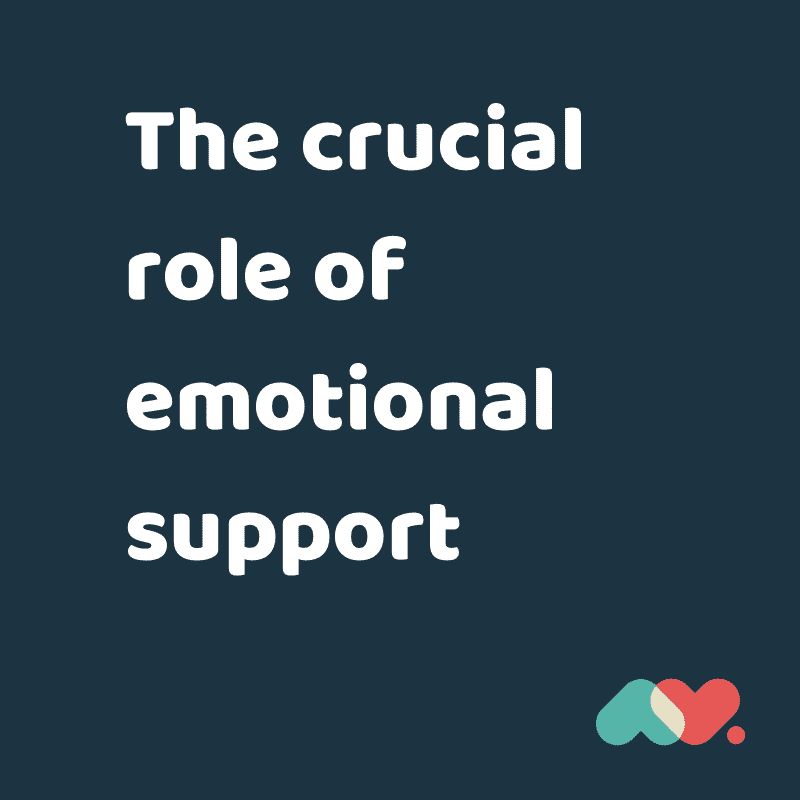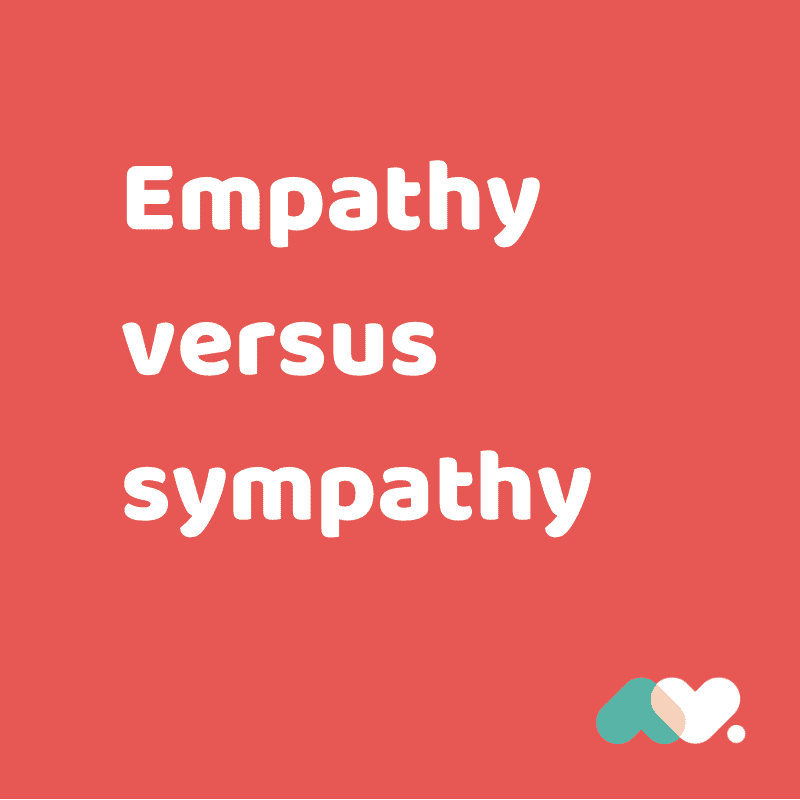
Navigating tough times: the crucial role of emotional support

Carina Gallegos is our Support Angel and Customer Love Manager at Support Crew.
Carina highlights that while physical support meets practical needs, emotional support is crucial for helping people navigate tough times with empathy and understanding and is equally important.
Life is a rollercoaster, full of twists, turns, and unexpected challenges. When our loved ones face difficult times, the support they receive can be a lifeline. Emotional and physical support are distinct yet interconnected forms of assistance that individuals provide to those facing challenging circumstances. While both are crucial components of a comprehensive support system, they differ in their focus and the aspects of well-being they address and, while physical help is essential, emotional support plays a pivotal role in navigating life’s storms.
Let’s explore why emotional support is as crucial as physical assistance and how Support Crew offers tools to promote healthy emotional support.
The power of a listening ear
Imagine a stormy sea of emotions where your friend or family member is adrift, desperately seeking a safe harbour. Often, what they need most is a listening ear. Emotional support involves validating feelings, offering empathy, and simply being present.
1. Acknowledging emotions
In times of crisis, emotions can be overwhelming. Whether it’s sadness, fear, or frustration, acknowledging and validating these feelings creates a bridge of understanding. Validating emotions comes without judgement – of yourself or of others. Everyone experiences emotions in their own unique way, based on individual life-experiences. There isn’t a ‘correct’ way to feel. Acknowledging where you and your loved ones may be at, with authenticity, is a big first step into getting the support required.
2. Empathy
Step into your loved one’s shoes and feel the weight of their emotions. Empathy goes beyond sympathy; it’s a genuine connection that fosters trust and emotional healing. In order to practise true empathy, dare to step into discomfort. Imagine what your loved one may be experiencing without judgement and without a need to ‘resolve’ where they may be at. Our other blog Empathy versus Sympathy explores that some more.
Emotional vs. physical support
In essence, emotional support nurtures the mind and soul, providing solace and understanding, while physical support attends to the tangible aspects of life, ensuring that daily needs are met. A well-rounded support system often incorporates both emotional and physical support, recognising that individuals facing difficult times require a holistic approach to foster overall well-being.
For example, someone dealing with a health crisis may benefit from emotional support in the form of comforting words and empathy, while also requiring physical support with tasks like meal preparation or transportation to medical appointments. The combination of both types of support creates a comprehensive and effective network for those navigating challenging circumstances. Balancing the two is crucial for holistic care.
Let’s look at a straightforward and brief comparative analysis between the two:
- Physical support:
Practical assistance, like preparing meals or running errands, eases the burden of daily tasks. However, it may not directly address the emotional challenges your loved one is experiencing.
- Focus: Physical support is centered around addressing tangible, practical needs an individual may have.
- Nature: It involves assisting with concrete tasks or activities that impact daily life and physical comfort.
- Examples: Providing assistance with chores, cooking meals, running errands, offering transportation, or helping with personal care are common forms of physical support.
- Impact: Physical support directly addresses immediate, practical challenges an individual may face. It can alleviate the burden of daily tasks, allowing the person to focus on recovery or coping with their situation.
- Emotional support:
Providing a shoulder to lean on or a listening ear, offering words of encouragement, or sharing a comforting virtual hug bridges the gap that physical help might not reach. Emotional support is the glue that holds the support structure together.
- Focus: Emotional support primarily addresses the psychological and mental well-being of an individual.
- Nature: It involves providing comfort, empathy, and understanding to help someone navigate their feelings and emotions.
- Examples: Offering a listening ear, providing encouragement, expressing empathy, sharing positive affirmations, and showing compassion are all forms of emotional support.
- Impact: Emotional support helps individuals feel understood, validated, and less isolated. It contributes to mental resilience and emotional well-being, fostering a sense of security and trust.
The ripple effect of emotional support
Emotional support is a gift that keeps on giving. When you provide a listening ear or a kind word, you create a ripple effect that positively impacts the entire support network.
- Encouraging others to express emotions:
By openly expressing emotions and offering support, you set the tone for others to do the same. Emotional honesty becomes contagious, fostering an environment where everyone feels comfortable sharing their feelings.
- Building trust and strengthening bonds:
Trust is the cornerstone of any supportive relationship. Through emotional support, bonds are strengthened, creating a foundation that can withstand the toughest storms.
Support Crew strengthens emotional connections
Enter Support Crew – a digital haven designed to facilitate support in all its forms. Support Crew is a free online platform that offers a secure and private space for heartfelt exchanges. Create a Support Page and use it to ask for help, for support, and as a platform to share words of encouragement, express concern, or simply check in without the external noise. With real-time updates, you can use the messaging of your Support Page to stay connected with your loved one, receive updates on their emotional state, and offer immediate support when it’s needed the most.
If you’d like to get started with a Support Page, for yourself, or someone else, you can do so here.




